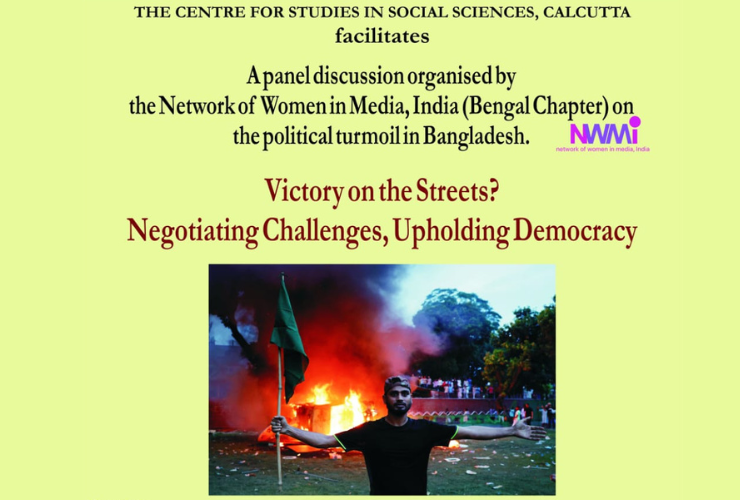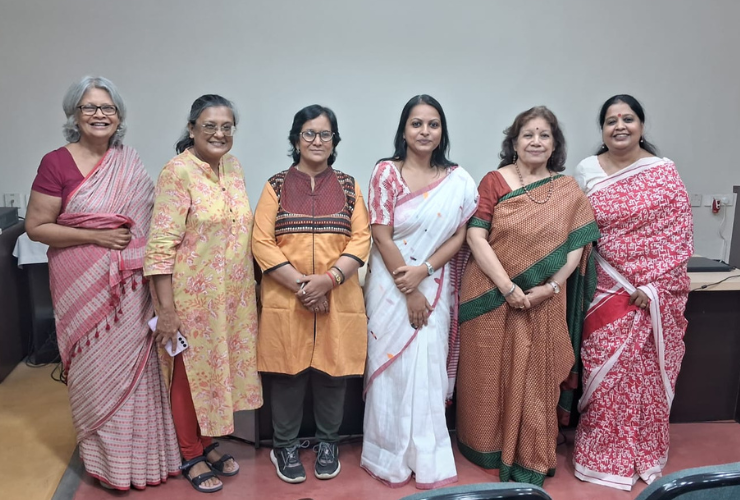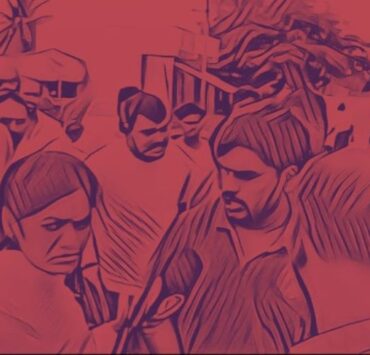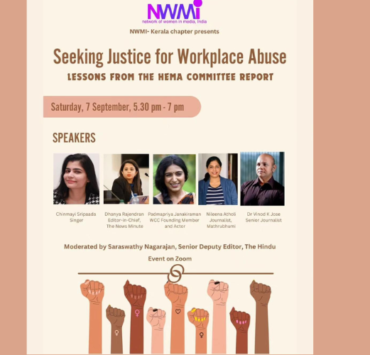
By Uttara Gangopadhyay

On August 9, 2024, the Bengal chapter of Network of Women in Media, India (NWMI-Bengal) organised a panel discussion on the political turmoil in Bangladesh. The objective was to better understand the situation following the quota reform movement by the nation’s university students — a movement that spiralled into an anti-government, pro-democracy people’s movement, and the fall of the Awami League-led government.
The programme was held in collaboration with the Centre for Studies in Social Sciences, Calcutta (CSSSC), at their Jadunath Bhavan Museum and Resource Centre.
Chapter members present in this event were Rajashri Dasgupta, Ranjita Biswas, Uttara Gangopadhyay, Atasi Dhar, Sudarshana Chakraborty and Seemantini Gupta. Despite their busy schedule, members tapped into their pool of contacts and other resources to make this event possible.

The panel was chaired by Debdatta Chowdhury, Assistant Professor in Gender Studies at CSSSC, and Sudarshana Chakraborty, NWMI-Bengal member, independent journalist, and editorial team member of the news portal groundxero.in.
The panel discussion was held in hybrid mode, with the Indian participants joining locally in Kolkata and the Bangladeshi participants joining online. This helped the guests to get an unbiased view of the situation.
NWMI-Bengal member Ranjita Biswas welcomed the audience and introduced the theme.
Arka Bhaduri, executive editor of The International magazine and founding member of nagorik.net, put the situation in perspective while recounting his experiences of working in Bangladesh. While he agreed that quota-related dissatisfaction had ignited the movement, he argued that the ultimate outcome was an expression of dissatisfaction among Bangladeshis over various issues (such as loss of democracy), and their loss of trust in the government. He also said that people’s perceptions about their immediate neighbour, India, had been gradually changing over the years.
Political scientist Maidul Islam of CSSSC gave a scholarly review of the situation based on his visit to Bangladesh where he found that the government’s move towards authoritarian rule was affecting the middle class.
Muktadir Rashid Romeo, a journalist with the news portal Bangla Outlook, focused on the “development narrative” that was propounded by the (now former) Sheikh Hasina-led government. Mainstream media was aiding her while failing to report on the deplorable condition of the people. On the other hand, journalists who were keen to expose these ills were subjected to harassment and even torture.
Samata Biswas, who teaches English at the Sanskrit College and University, Kolkata, has been working on digital democracy and social media. She spoke on the advantages and disadvantages of this new medium that has been influencing people’s movements, making her observations with reference to the situation in Bangladesh.
Sharmistha Ghosh, Assistant Professor in the School of General Education, BRAC University, who was present in Bangladesh while the movement was gathering momentum, spoke about her personal experiences, including how the state machinery was bent on stopping students’ peaceful movements.
Documentary photographer Tania Sarkar, who had covered the 2018 anti-quota student movement of Bangladesh, made a photographic presentation of her work.
The star of the evening was young Nafisa Nawar Nijhum. A 12th grade student at the Government Huseyn Shaheed Suhrawardy College, Magura, Bangladesh, Nafisa stunned everyone with her mature understanding of the situation, unbiased opinions, and clear articulation.
Seemantini Gupta, coordinator of the chapter, delivered the vote of thanks, and the event concluded with a question and answer session.
Edited by Sandhya Srinivasan




